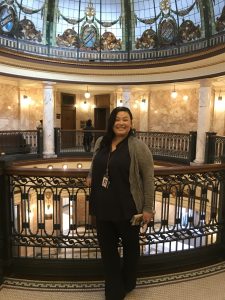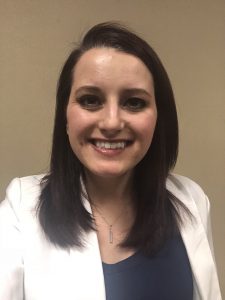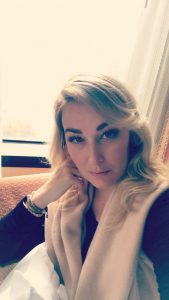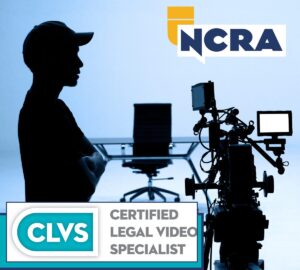
By Megan Rogers
One of the benefits of reporting is that reporters can go in many different directions throughout their career. Nicole Bulldis, RPR; Melissa Case, RPR; and Debrina Jones have all switched from being freelance reporters to becoming officials. The JCR talked to them about why they switched, the differences they found between the two roles, and what they like about being officials.
JCR | Please share where you’re working and how things are set up at your courthouse.
BULLDIS | I work for the Superior Court in two small counties, Benton and Franklin, in southeastern Washington. Three reporters retired last year, each had been there for more than 30 years, and it was the first time they’d had to hire a court reporter in almost 15 years. Just before we started, they had been assigned to judges, but switched to pool. It makes things a lot easier for us in that we don’t have to find reporters to cover for us to be able to take vacation or leave time.
CASE | I work at Cuyahoga County Common Pleas Court in Ohio. We are part of a pool. I could work for two or more judges every day.
JONES | I work as an at-large for the 13th Circuit in the Family Court Division in Greenville, S.C. Due to the court reporter shortage, they are not assigning to one judge right now.
JCR | How long were you freelancing, and when did you start working as an official?
BULLDIS | I started as an official in January 2017. I had been freelancing for nine months when I applied for the job. I interviewed at the beginning of November, accepted the position mid-November, and we moved 300 miles on December 1.
CASE | I was freelancing for three years and eight months. My start date was Oct. 11, 2016.
JONES | I freelanced for two years, and I started as an official in August of 2017.

JCR | What work did you specialize in when you were freelancing?
BULLDIS | I did a little bit of everything but was mainly doing medical depos.
CASE | I worked on everything I could.
JONES | I did everything and anything that was needed wherever I was needed between both North and South Carolina.
JCR | What made you switch from a freelance position to an officialship?
BULLDIS |Since court reporting was a second career and I didn’t start school until I was in my 30s, I’d always known I wanted to be an official because I love routine, but I also wanted retirement and benefits. I’d lived in Seattle all my life, and in the major metropolitan areas, you need to be realtime proficient to even be considered; so I started looking at outside opportunities.
CASE | I wanted to work with the best of the best. Our reporters here are amazing and set the bar high. I wanted the stability of a paycheck. I like going to the same place every day. I like having an office. I love my coworkers. I love being social and being able to bounce ideas off other reporters. Benefits! Paid vacation. Guaranteed payment.
JONES | Here in the South Carolina courts, we are experiencing a massive shortage due to retirement, and I discovered the opportunity to step into an area that would open greater doors for me. I loved the transcripts we would practice to in school, and I enjoyed the experience while interning, so when the opportunity was mentioned to me, it was one I felt I should jump at.
JCR | What is the biggest challenge you’ve faced in your new role? How have you overcome that challenge?
BULLDIS | I’ve started realtiming for my judges when they request it. I think that was a huge challenge as a new professional because I’m still building my dictionaries and learning on my feet as I go. I’m currently working on my CRC so I can serve jurors, witnesses, and parties in our community who are Deaf and hard-of-hearing.
CASE | My biggest challenge was coming into this courthouse and being very young. People always ask my age and if I’m qualified to be here. I just sit down and do my job and be polite.
JONES | I had to adjust to some days being slammed with a hearing every 15 minutes and a courtroom full of litigants, family, counsel, and emotions. I have learned to communicate effectively with my judges and my deputies, so I am always on track and aware of what’s happening around me. I have also learned to find a healthy balance outside of work where I can release the day’s stress. In order to be the best reporter I can be, I have to make sure I take care of myself just as much as I take care of the record.

JCR | What surprised you most about being an official? Why?
BULLDIS | I think I was most surprised by how much I enjoy being an official. Jumping back into a 9-5 and having to dress up every day seemed pretty unappealing after freelancing, but I actually look forward to going to work every day. I also thought it was really cool how supportive our judges are. They’re constantly checking on us and making sure we can hear, etc.
CASE | The work that we get here and finding out what happens in your community. It’s surprising to find out the criminal activity that’s going on in businesses that you might have shopped at before. Seeing myself on the news. I also feel like I am more respected here as a reporter.
JONES | How much I enjoy the job itself, the hours, and the people I work with. Everyone has been incredibly helpful and welcoming to me as I have learned the ins and outs of officialship. I had a small view of this reality while I was interning, however, I moved to a place where I didn’t know a single person. I wasn’t sure how any of the transition would go, and it has gone incredibly well.
JCR |Where do you go for support or advice?
BULLDIS | There were three of us who were hired in January, but the other three reporters have all been reporting for over 20 years. We’re extremely lucky to have access to that much institutional knowledge available to us, and they’re very nurturing.
CASE | I have an officemate who has been here for 20-plus years. She’s great to ask questions. If she’s not here, I have 40 other reporters outside my door.
JONES | I reach out to my fellow reporters that I work with and those I have met throughout my years as a student and as a reporter. I am very thankful to have met some truly wonderful reporters that I can learn from and find support in.
JCR |What are some of the benefits to being an official for you?
BULLDIS | I commute to the same two courthouses, both of which are less than 15 minutes away, and parking is provided. I have awesome medical benefits that include 24 massages a year (a must for reporting). I have set hours, paid holidays and vacations, and I’m working towards retirement. I know the judges and their expectations, and I feel like that makes me better at my job.
CASE | I get to write more and work less. I have a salary.
JONES |There is a stability in the hours, paid holidays, and requested days off. The health and retirement benefits are a huge plus. I have also enjoyed how much I learn from my judges on a daily basis. I have thoroughly enjoyed learning from some of the best that the legal system has to offer and being able to have such pride in providing them with what is a pivotal part of the judicial system.
JCR |What do you miss about freelancing?
BULLDIS | When huge or expedited transcript orders come in, I really miss the ability to take myself off the books and also working from home in my sweats.
CASE | Sleeping in.
JONES | The ability to take myself off of the calendar to catch up on work, and to have time off for leisure with much more ease, and working in my comfy clothes all day.
JCR |What advice do you have for anyone thinking of making the switch?
BULLDIS | Sit out with an official and see if it’s something you’re actually interested in. I was a regular in a couple courthouses because I wanted to build speed and learn the ropes.
CASE | Shadow a reporter for a day. Go to the courthouse and meet the reporters. Talk to them. Don’t be afraid. It was the best decision I’ve made for my future in court reporting.
JONES | Take into account your own personal goals and ambitions as a court reporter: your needs and desires in life with regards to finances, stability, and flexibility. Sit out with an active official and see if you can picture yourself doing that job; you may just be pleasantly surprised at the inner workings.
Megan Rogers is NCRA’s Content Manager. She can be reached at mrogers@ncra.org.






